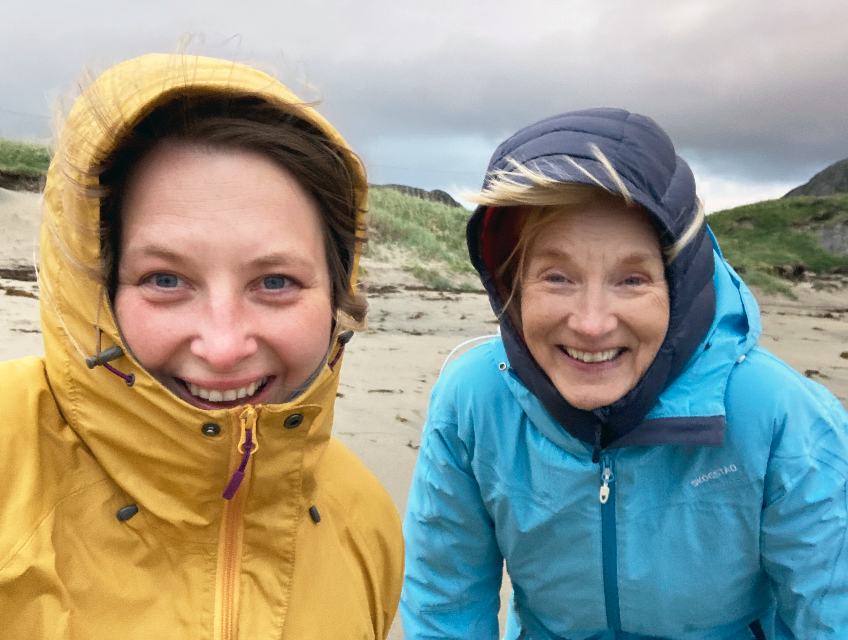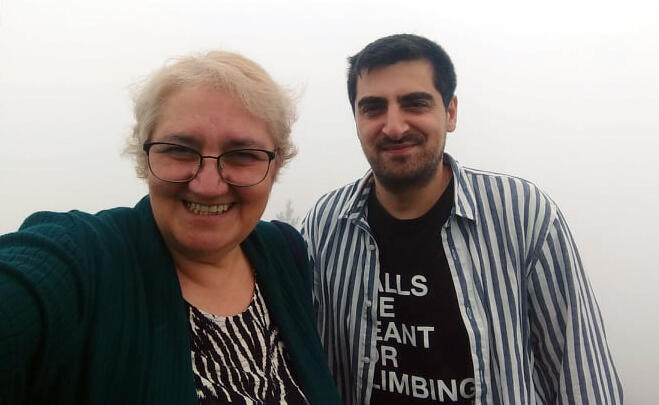Hybrid Summer School: A Success!
Georgian and Norwegian Anthropology students tested their skills as real anthropologists during twelve intensive days of Summer School in Anthropological Research Methods.
Main content
Hello from Kirkenes and Borjomi!
As the last year’s summer school was cancelled due to Covid-19, project leaders Tone Bringa, Ketevan Khutsishvili, Elina Troscenko and Giorgi Cheishvili were eager to develop a new plan for the summer 2021. The solution was a hybrid version of summer school with two field destinations, digital cooperation and joint teaching.
Borjomi served as base for the Georgian side of the summer school, while the Norwegians went to Kirkenes in North-Norway. - Besides sharing their experiences of studying in two different academic environments, they are also expected to establish personal relationships. By doing so, we hope to create a long-lasting network of prospective academics from Georgia and Norway, says Giorgi Cheishvili.
Snowballing, Visual Methods and Field Notes
The summer school started with four days of teaching and practical exercises. The students learned about how to plan a fieldwork, visual anthropology and research methods, interview techniques and important aspects of field note taking.
One of the first exercises was to interview a student from the other side, TSU or UiB, on Zoom. This initiated student communication through various digital platforms and allowed them to start to train their interviewing techniques. Other practical exercises included usage of mobile phones as methodological tool, and observations of how people use public space. By sharing their findings to the group the students also got to practice their presentation skills.
It was surprising how well we all have succeeded to create a very special atmosphere of being together. - Professor Ketevan Khutsishvili
Entering the Field
For fieldwork exercise students were organized into teams of two, one from TSU and one from UiB, with similar research interests. When in field, finding informants and making contact was challenging in different ways. The streets of Borjomi were crowded with tourists and locals enjoying summer. However, face mask and Corona restrictions made conversation with strangers difficult.
In North of Norway the students had trouble finding any people at all. The weather was chilly, no tourists or foreign workers were allowed to arrive, and the few locals that live there were on summer vacation.
The students experienced how many roles one goes into during fieldwork: curious student, tourist, engaged participant, laidback observer and annoying interviewer. They all agree that people are very helpful when asked to participate or share their thoughts.
Unique Opportunity
Both the project leaders and the students were very happy about the new format of the summer school as it allowed them to be a part of this joint event even while being at different locations.
- I was very pleased when I saw how the students were talking about each other and after the exciting presentations, inviting each other to Norway and Georgia respectively, says Giorgi Cheishvili.
The Summer School in Anthropological Methods is financed by the Eurasia Programme at DIKU. The summer school is free of cost for the studentsand the project leaders hope many engaged anthropology students will apply for summer school next year – which is the last year of NorGePart porject.




